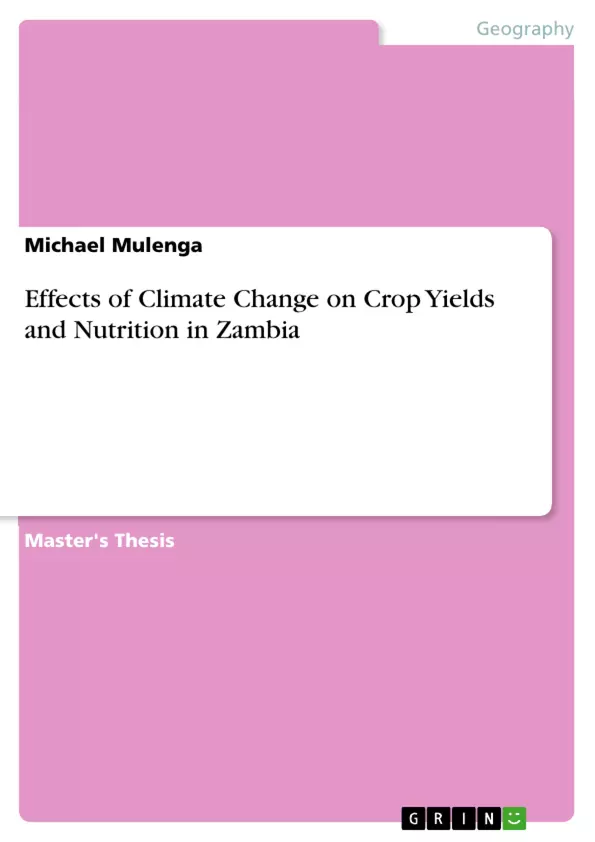Climate change has adversely affected many communities and countries around the world, however, poor people in less developed countries are the most affected. The research investigated the negative impacts of climate change on rural communities in the Vubwi District in the eastern province of Zambia using observation, trend analysis, Pearson Regression, and Multiple Regression. Simple and Purposive sampling was employed to collect samples from the population, of 6096 rural households. The finding of the analysis was that 78% of the respondents were adversely affected y the impacts of climate change, while 22 were not badly affected. The local people lacked access to early warning and facilities such as dams for harvesting rain water for irrigation in times of drought and animal drinking. It was recommended that early maturity seed varieties be introduced to the rural poor people and scaling up means to livelihood diversity such as chicken rearing and adopting drought resistant crops such as cassava.
Inhaltsverzeichnis (Table of Contents)
- CHAPTER ONE: INTRODUCTION
- 1.1 BACKGROUND TO THE STUDY
- 1.2 EFFECTS OF CLIMATE VARIABILITY, ZAMBIAN PERSPECTIVE
- 1.3 STATEMENT OF THE RESEARCH PROBLEM
- 1.4 AIM OF THE STUDY
- 1.5 OBJECTIVES OF THE STUDY
- 1.6 RESEARCH QUESTIONS
- 1.7 RESEARCH HYPOTHESIS
- 1.8 SIGNIFICANCE OF THE STUDY
- 1.9 SCOPE OF THE STUDY
- 1.10 THEORETICAL FRAMEWORK
- 1.11 CONCEPTUAL FRAMEWORK
- 1.12 LIMITATIONS OF THE STUDY
- 1.13 DEFINITION OF KEY TERMS
- 1.14 STRUCTURE OF THE REPORT
- 1.15 CHAPTER SUMMARY
- CHAPTER TWO: LITERATURE REVIEW
Zielsetzung und Themenschwerpunkte (Objectives and Key Themes)
This study aimed to investigate the impact of climate variability on maize yields and the nutritional status of rural households in Vubwi District, Zambia. The research focused on the period between 2010 and 2019, exploring the relationship between changing climate patterns, agricultural production, and household food security.
- Climate Variability and Maize Yields
- Food Security and Household Nutrition
- Adaptation Strategies for Climate Change
- Impact of Climate Change on Rural Livelihoods
- The Role of Government and Development Organizations
Zusammenfassung der Kapitel (Chapter Summaries)
Chapter One: Introduction provides background information on the study, including the context of climate variability in Zambia and its effects on agriculture. The chapter also outlines the research problem, objectives, hypotheses, and significance of the study. It presents a theoretical and conceptual framework for understanding the relationship between climate variability, crop yields, and household nutrition.
Chapter Two: Literature Review provides a comprehensive review of existing literature on the impacts of climate change and variability on agriculture, food security, and household nutrition. It explores various adaptation and mitigation strategies, focusing on rural communities in developing countries. The chapter examines previous studies that have investigated similar relationships in Zambia and other regions.
Schlüsselwörter (Keywords)
The key terms and concepts explored in this research include climate change, climate variability, crop yields, food security, household nutrition, adaptation, livelihood diversification, mitigation, rural development, and agricultural practices.
- Quote paper
- Michael Mulenga (Author), 2021, Effects of Climate Change on Crop Yields and Nutrition in Zambia, Munich, GRIN Verlag, https://www.grin.com/document/1188917



